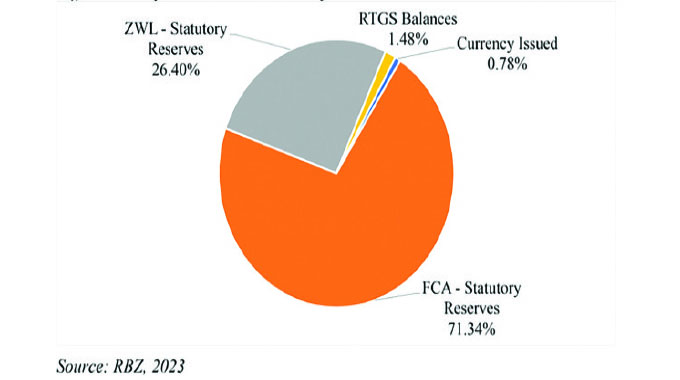Govt to assume RBZ’s $1,4bn debt

 Business Reporter
Business Reporter
GOVERNMENT can now complete the legal assumption of the central bank’s $1,4 billion debt following gazetting of the Reserve Bank of Zimbabwe Debt Assumption Act recently. The new legislation which took effect on August 7, 2015 is meant “to provide for the settlement of certain liabilities incurred by the Reserve Bank of Zimbabwe”.
The accrued liabilities in question are debts incurred by the central bank before December 31, 2008 in the course of quasi-fiscal operations undertaken with Government approval.
The procedure laid down for settlement is that the Minister of Finance and Economic Development, on behalf of the State, will assume responsibility for the settlement of the debts.
However, this is only to the extent that claims are validated and reconciled by the Ministry’s Debt Management Office, empowered to demand documentary proof to support the claims.
The Act serves as the custodian of all aid and loan agreements to which liabilities in the Act shall be regarded as liabilities of the central bank even if it had no power to incur such or the liability became payable after December 2008.
Creditor statements indicating balances, disbursements made, payments effected and dates of the foregoing, principal amount of the claim and the interest or court judgment may be required as proof of evidence for all claims.
The Minister of Finance will have power to fix terms and conditions under which debts are assumed and settled; and there is provision for him to liquidate debts through “Government-backed debt instruments”.
The Act also puts an end to legal proceedings, whether new or commenced, against the RBZ or any banking institution that acted for it in respect of any debt assumed by the minister or any associated obligation or claim.
In assuming these debts the Government’s objective is to clean up the reserve bank’s balance sheet in order to allow the bank to resume its proper role in the financial sector.
The functions, some of which it had stopped performing at the height of economic crisis in 2008, include banker to Government, lender of last resort, financial intermediation, and bank supervision among others.
Meanwhile, the Banking Act amendment Bill was also gazetted on August 7, 2015 and will seek to further tighten and strengthen the supervision of the domestic financial sector.
The Bill’s objectives include to improve the corporate governance of banking institutions, make banking institutions more responsive to customers’ needs and to encourage the effective resolution of banker/customer disputes.
It also seeks to introduce more transparency in the shareholding and operations of banks, allow bank regulators to monitor and regulate bank holding companies and increase co-operation between financial regulatory authorities.
To achieve these objectives, the Bill provides for amendment of the following; Banking Act, Reserve Bank of Zimbabwe Act, Deposit Protection Corporation Act, and repeal of the Troubled Financial Institutions (Resolution) Act.








Comments